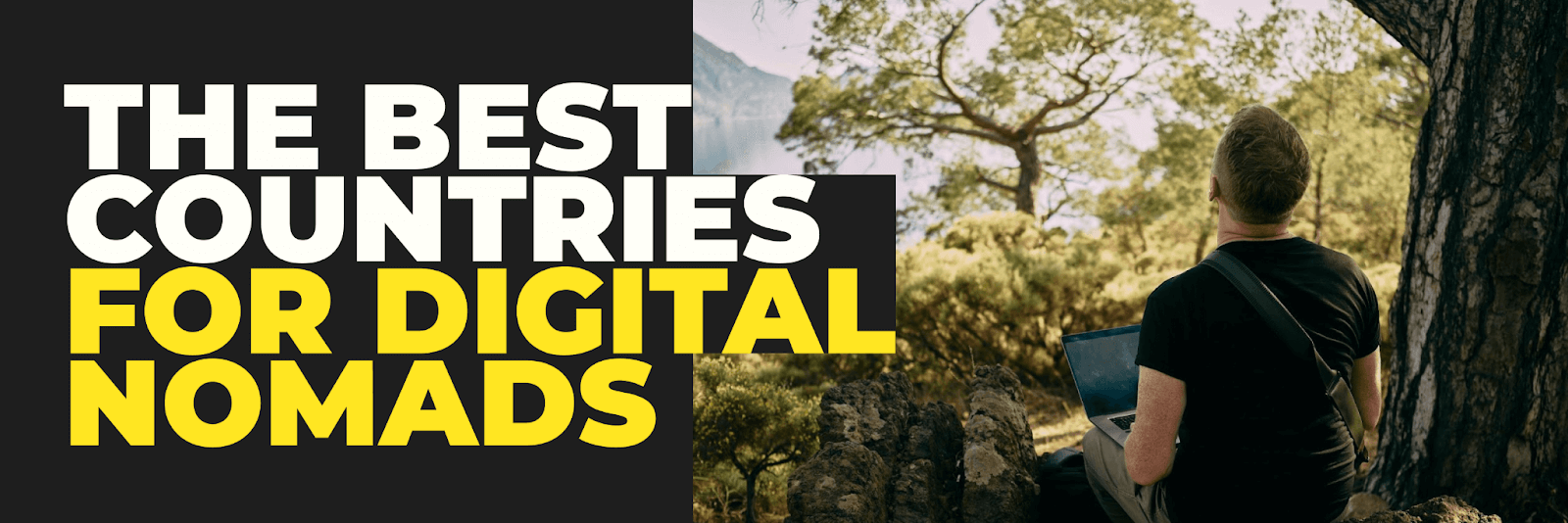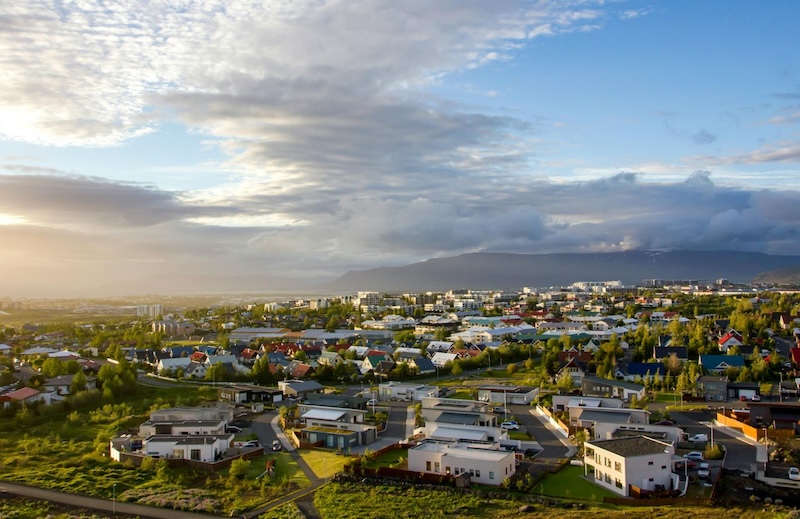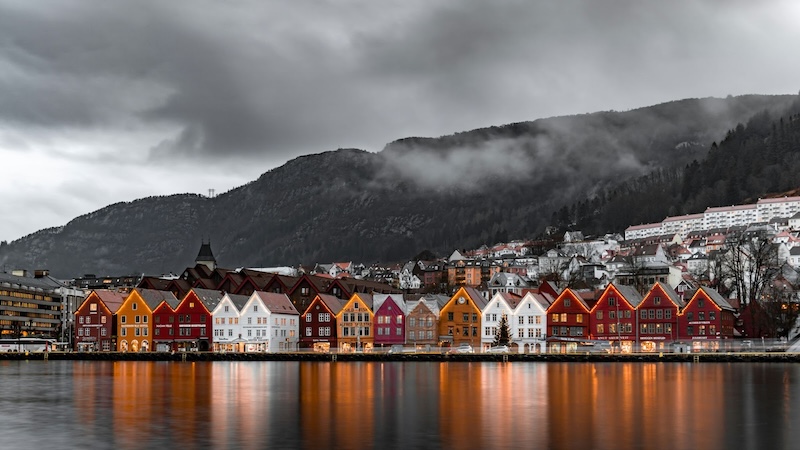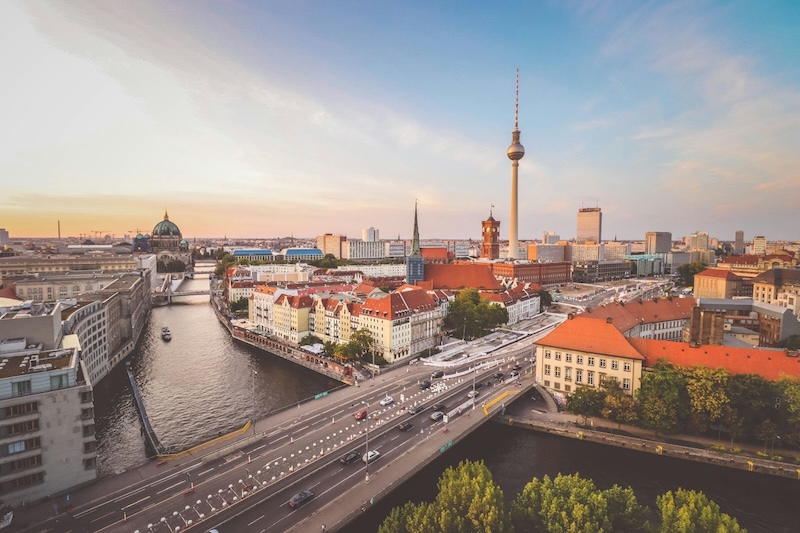
98% of workers say they’d like to work remotely at least some of the time, according to Buffer’s State of Remote Work report. Clearly, many of us aren’t desperate to return to the office fully any time soon. And as more and more countries release their own digital nomad visa schemes, more workers are taking their 9–5 global.
But when you can go anywhere in the world, where do you go? Here at Trint, we wanted to know which countries were the best for digital nomads, so we pulled together our Digital Nomad Index1. Whether you’re searching for some much-needed sun, a cheaper lifestyle or just a change of scenery, why not consider one of our top-ranking countries?

Coming out top in our ranking is Iceland. As the third happiest country in the world, you can enjoy a slice of this happiness if you make Iceland your new digital nomad home. It’s no wonder this country is so satisfied either. Iceland has one of the best standards of healthcare and, if you choose to live here as a digital nomad, you can access it just like an Icelandic citizen with your GHIC.
If you host a lot of video meetings, need to be in constant communication with coworkers and clients or upload large podcast audio files, then a fast and stable internet connection is no doubt top of your list. Luckily, Iceland tops the list for broadband speeds with the sixth fastest internet connection in the world. It’s the perfect base for remote creatives.
While the cost of living is relatively high in Iceland, the average cost of a cappuccino (£3.96) is only slightly higher than here in the UK (£3.21). However, there is one catch: Iceland’s strict digital nomad visa requirements. Applicants must have a minimum monthly income of around £5,981.55 to be accepted, the highest on our list.

While it might not be top of your list when it comes to finding a new home away from home, a country’s overall productivity can be a good signifier of how easy it will be to work there. High levels of productivity can signal strong practical benefits like reliable internet and good coworking spaces, alongside more serious factors like economic stability and infrastructure.
Norway came top of our list for country productivity (GDP per capita) with a market built around innovation and cooperation (Norwegian Embassy). The Norwegian healthcare system is one of the best in the world (alongside Iceland), also accepting the GHIC. English is also widely spoken in Norway so navigating life and business should be relatively barrier-free — though we’re sure locals would appreciate it if you picked up a few key Norwegian phrases!
Even better, Norway is just a two-hour plane ride away from the UK, and just one hour ahead of GMT. So, if you need to head back home often or stick to UK office hours, Norway could be your new office base. Part-time nomads might also enjoy calling Spain, Germany or Andorra their new home, all of which are only a two-hour flight from the UK

Of course, there’s one main reason you’re thinking of taking up the digital nomad lifestyle: a better quality of life. Malta ranked highest in our quality of life indicators, offering some of the warmest sea temperatures in the whole of Europe (Met Office). If you’re picturing yourself taking calls by the beach or enjoying one of the country’s many historic sights on your day off, Malta may be your new office.
You also won't need to worry about safety and human rights in Malta — the country ranks as one of the safest countries for solo travelers, including solo female travelers. Malta is also ranked as one of the safest countries in the world for members of the LGBT+ community, according to the Spartacus Gay Travel Index.

If you want to get the most out of your digital nomad visa, Germany is your best bet. This option offers one of the longest stays on our list at up to three years, plus it’s one of the cheapest to acquire at around £63.17 for processing. Unlike many other countries, Germany’s digital nomad visa doesn’t have a minimum monthly income requirement either.
Germany also benefits from a large number of coworking spaces which are perfect for the nomad worker. With around 791 coworking spaces in total, you’ll never be short of spots to rest your laptop. In fact, Germany is included in the top five countries for coworking spaces, with 3.85% of the world’s share. This is just behind Spain with 939 spaces, and ahead of Canada with 617 (Coworking Resources).

If the cost of living is on your mind, Argentina may very well be your new working hub. Here, you could head into your local cafe and enjoy a cappuccino while you work for just £1.50. Argentina also enjoys some of the lowest income tax rates on our list. While the top level tax rate is 35% for those earning ARS 143,012,092.08 or more (around £119,564.22+), those learning less can expect to pay between 25% and 30% (Santander). As a comparison, the UK currently charges 40% income tax on salaries of £50,271 to £125,140, and 45% over £125,140 (Gov.uk).

If your home is known for dreary winters (or maybe even summers) and you're seeking a sunnier spot, look no further than Colombia. With some of the highest average annual temperatures in our ranking, you can count on Colombia to offer plenty of sunshine. Though, thanks to its tropical climate, spring and autumn can bring showers. If you’re looking for warm but comfortable temperatures and reliable sunshine to boost your productivity, you might want to consider Malta too.
Colombia also has a relatively low cost of living. A cappuccino could set you back just £1.19. What’s more, digital nomads need a minimum monthly income of £527.04 to qualify for a visa — the lowest on our list.
In light of the results, Georgie Wickman (VP of Strategy and Operations) from Trint said: “In the age of remote working, we’re no longer restricted to dingy office spaces or even our own homes. Workers have the freedom to go wherever they want, and with more countries introducing digital nomad schemes, it’s easier than ever before.
“As long as you have a laptop or mobile device and a secure internet connection, you really can’t go wrong. Plus, there are so many online productivity and content creation tools out there that make collaborating with your colleagues secure, even from other countries.”